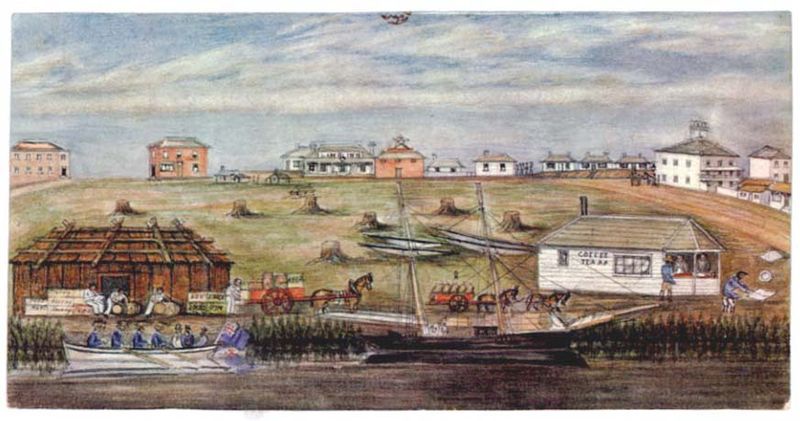On 4 September 2002 I attended a lecture at Whitley Baptist College, Melbourne at which Dr Clark Pinnock, recently retired professor at McMaster University, USA, was the lecturer. Perhaps happily the attendance was only about 30.
His subject was open theism, the view that God gives up some power to his creatures so that they can have room to be. Pinnock is one of several major figures in the openness of God debate. It is a major issue in the USA at present, and will undoubtedly have influence here too. The Australian Presbyterian ran several good articles on the subject in their August 2002 issue.
Openness theology was presented by Pinnock as classic Arminianism ‘with a twist’. Arminianism, named after Jacob Arminius (1560-1609), is that view which believes God’s sovereignty is limited by the choice of the creature. God does what he can, but ultimately he must bow before the free will of the creature.
Now ‘freedom’ can be a bit of a weasel word, meaning different things to different people. The Biblical viewpoint is that freedom is not the ability to act contrary to our nature but to act in accordance with our nature. As we are spiritually dead toward God, spiritual life is the result of God’s powerful renewing work in our lives. God is in total control, yet we always have freedom within the bounds of our nature, and we are always fully responsible to God since our spiritual inability is our own fault.
Pinnock wanted to call this the determinist position and characterised it as God treating us as puppets. Doing what we are programmed to do is hold an unworthy view of God, he said. Indeed, on Calvinist principles we could not say ‘an enemy has done this’, when expounding the parable of the tares. Orthodox Calvinists such as John Frame were dismissed as hyper-Calvinists. [A hyper Calvinist is a person who denies human responsibility in the interest of maintain Divine sovereignty, and so is the opposite error to Arminianism.] If we believe God is responsive to prayer and does guide us, we couldn’t believe the nonsense of the determinist position, argued Pinnock. God is not frozen in time, but ever responsive to his creatures. He cited Aquinas (1225-74) who describes God as like a stone pillar: we move in relation to him but he does not move. I haven’t located the Aquinas reference but whatever Aquinas meant by it, assuming he is correctly quoted, he did not mean to exclude God’s responsiveness to petitionary prayer.
Pinnock argued that 85% of what he believes is not controversial to non-determinist Christians, but the new twist is in the 15%. The new twist is the belief that God knows everything current but not all of the future. The future is partly settled and partly not settled since it depends on the entirely free and undetermined acts of his creatures. God cannot know these, otherwise they would not be free acts. He argued that the strategy to further this view should not be to insist that it alone is correct, but to advocate it as an option that should be considered. Hopefully this would ultimately bring over the Arminian evangelicals, who have mostly not accepted openness teaching yet. Calvinists hold that God knows the future because he has planned it and brings it to pass without violating the true freedom of his creatures. Arminians say that God has not planned the future but foresees what men will choose to do. Openness theology says creation is God’s project, and only some parts are settled.
The strength of this position is found in stressing those passages of Scripture which speak of the future as uncertain, of God repenting etc. Philosophically, it is argued that genuine interactions, libertarian free actions, cannot be exhaustively foreknown. Scientifically, novelty and chance are features of the world we know. Confidence in God should rest on the competence and resourcefulness of God who knows every possibility and is ready with a response.
The weakness of this position is its failure to take all the Scripture data into consideration, its philosophical (rather than biblical) notion of freedom, its failure to reckon with chance as a valid concept yet still under the sovereignty of God (Proverbs 16:33), and its inability to meet the practical reality of suffering. Indeed, how can you be sure that the unsettled things won’t unsettle the settled things? How can God speak about a happy ending if he has no control over the free decisions of human agents? When trouble or trial afflicts is it the case that God could do nothing?
Pinnock himself climbed down from his dismissive rhetorical flourishes after the morning tea break (I claim some responsibility for that). He moved from describing good Presbyterian theology as nonsense to saying it had some great positives, and that John Frame was not a hyper-Calvinist after all, just a strict Calvinist. He even acknowledged we had 400 years of rather impressive reflection on these important issues. All this, however, only illustrated that Pinnock, though an interesting enough speaker, is no careful theologian, knowledgeable in historical theology and scrupulous in presenting the issues.
Over the years his theology has changed a lot. It may be doubted if Pinnock has reached his final point. Those who wish to acquaint themselves with the issues may, however, follow one piece of advice offered by Pinnock: read Divine Foreknowledge: Four Views edited by James K.Beilby and Paul R. Eddy (Downers Grove: IVP, 2001). This is not light reading but Gregory Boyd, a more able man than Pinnock, gives a presentation of openness theology, Paul Helm the orthodox Reformed view, with David Hunt and William Lane Craig respectively offering simple-foreknowledge and middle-knowledge views. For a direct critique of open theism, Bruce Ware, God’s Lesser Glory: The Diminished God of Open Theism (Wheaton: Crossway, 2000) is recommended.
From The Presbyterian Banner, October 2002

Comments are closed, but trackbacks and pingbacks are open.